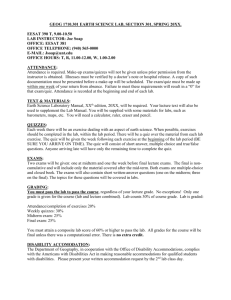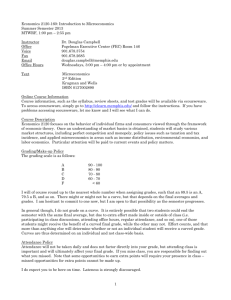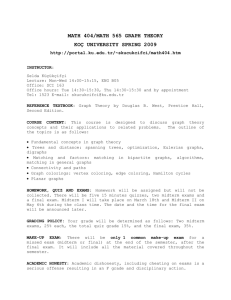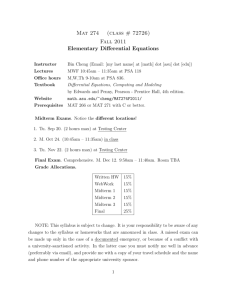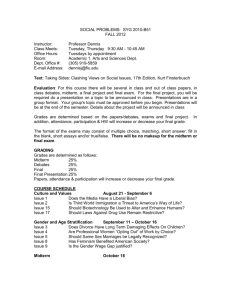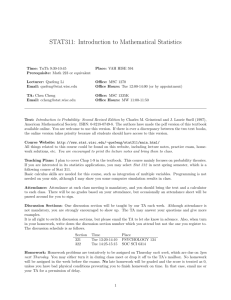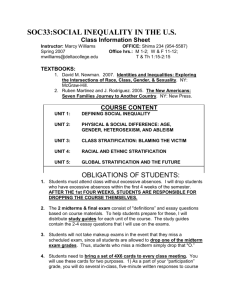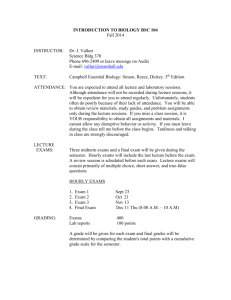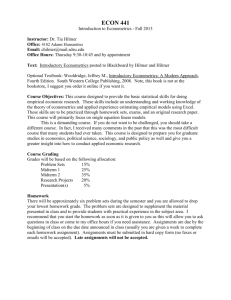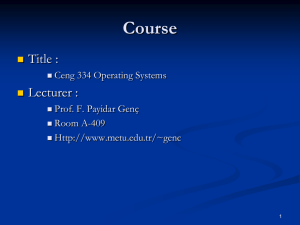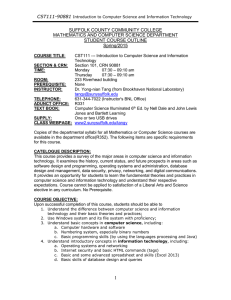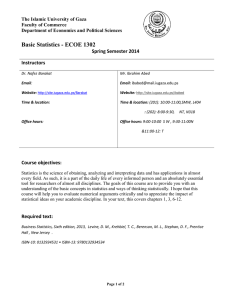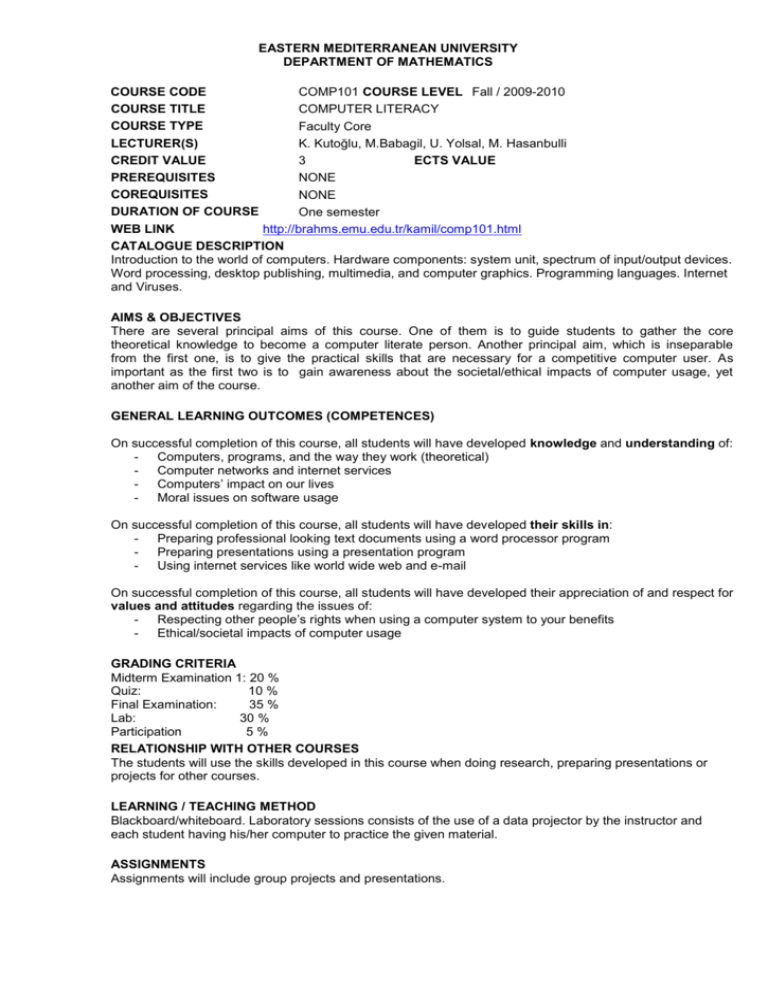
EASTERN MEDITERRANEAN UNIVERSITY
DEPARTMENT OF MATHEMATICS
COURSE CODE
COMP101 COURSE LEVEL Fall / 2009-2010
COURSE TITLE
COMPUTER LITERACY
COURSE TYPE
Faculty Core
LECTURER(S)
K. Kutoğlu, M.Babagil, U. Yolsal, M. Hasanbulli
CREDIT VALUE
ECTS VALUE
3
PREREQUISITES
NONE
COREQUISITES
NONE
DURATION OF COURSE
One semester
WEB LINK
http://brahms.emu.edu.tr/kamil/comp101.html
CATALOGUE DESCRIPTION
Introduction to the world of computers. Hardware components: system unit, spectrum of input/output devices.
Word processing, desktop publishing, multimedia, and computer graphics. Programming languages. Internet
and Viruses.
AIMS & OBJECTIVES
There are several principal aims of this course. One of them is to guide students to gather the core
theoretical knowledge to become a computer literate person. Another principal aim, which is inseparable
from the first one, is to give the practical skills that are necessary for a competitive computer user. As
important as the first two is to gain awareness about the societal/ethical impacts of computer usage, yet
another aim of the course.
GENERAL LEARNING OUTCOMES (COMPETENCES)
On successful completion of this course, all students will have developed knowledge and understanding of:
- Computers, programs, and the way they work (theoretical)
- Computer networks and internet services
- Computers’ impact on our lives
- Moral issues on software usage
On successful completion of this course, all students will have developed their skills in:
- Preparing professional looking text documents using a word processor program
- Preparing presentations using a presentation program
- Using internet services like world wide web and e-mail
On successful completion of this course, all students will have developed their appreciation of and respect for
values and attitudes regarding the issues of:
- Respecting other people’s rights when using a computer system to your benefits
- Ethical/societal impacts of computer usage
GRADING CRITERIA
Midterm Examination 1: 20 %
Quiz:
10 %
Final Examination:
35 %
Lab:
30 %
Participation
5%
RELATIONSHIP WITH OTHER COURSES
The students will use the skills developed in this course when doing research, preparing presentations or
projects for other courses.
LEARNING / TEACHING METHOD
Blackboard/whiteboard. Laboratory sessions consists of the use of a data projector by the instructor and
each student having his/her computer to practice the given material.
ASSIGNMENTS
Assignments will include group projects and presentations.
METHOD OF ASSESSMENT
Written quizzes, midterm and final exams will be the main mode of assessment. Quiz and midterm exam
results will be announced to the students within few days and their papers made available for discussion on
individual basis. This will help the student to correct the misconceptions on a topic in which wrong answers
were written.
ATTENDANCE
Attendance is compulsory. Students with attendance less than 80% in lectures will be given NG grade.
TEXTBOOK/S
Computers Are Your Future, Complete, 10/E, Diane M. Coyle, Montgomery County Community College
INDICATIVE BASIC READING LIST
Lecture Notes for this course can be found on the course’s web site.
EXTENDED READING LIST
Daley, B. (2006). Computers Are Your Future. Pearson Prentice Hall.
SEMESTER OFFERRED
2007-2008 Fall Semester
CONTENT & SCHEDULE
The lecture topics within the semester are as in the following schedule:
WEEK
1
2
3
4
5
6
7
8
9
10
11
12
13
14
TOPICS
Welcoming And Introduction
Computers and You
The Internet and the World Wide Web.
The Internet and the World Wide Web cont.
Wired and wireless communication.
Wired and wireless communication. Quiz Ch1 – Ch3
Software; System software: Operating systems and other essential system utilities.
Midterm 1
Application software. General-purpose, commercial, freeware, shareware, etc.
Hardware; Inside the System Unit
Networks: basic concepts. Local area networks and their topologies.
Networks: network protocols, wide area networks.
Review
Final exams
PLAGIARISM
This is intentionally failing to give credit to sources used in writing regardless of whether they are published
or unpublished. Plagiarism (which also includes any kind of cheating in exams) is a disciplinary offence and
will be dealt with accordingly.)
ANY OTHER USEFUL INFORMATION (SUCH AS STUDIO RULES, MAKE-UP EXAMS, STUDENTS’
RESPONSIBILITIES, EQUIPMENT OR MATERIAL NEEDED, SITE TRIPS, ETC.)
There will be one make-up exam for the students who missed either the mid-term or the final exam. The
make-up exam will be administered after the final exams.

